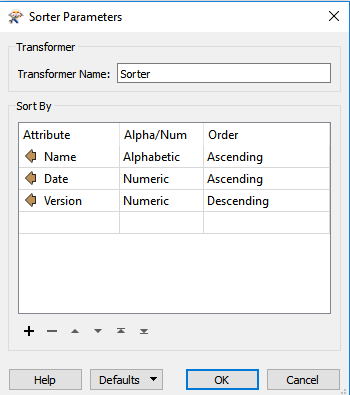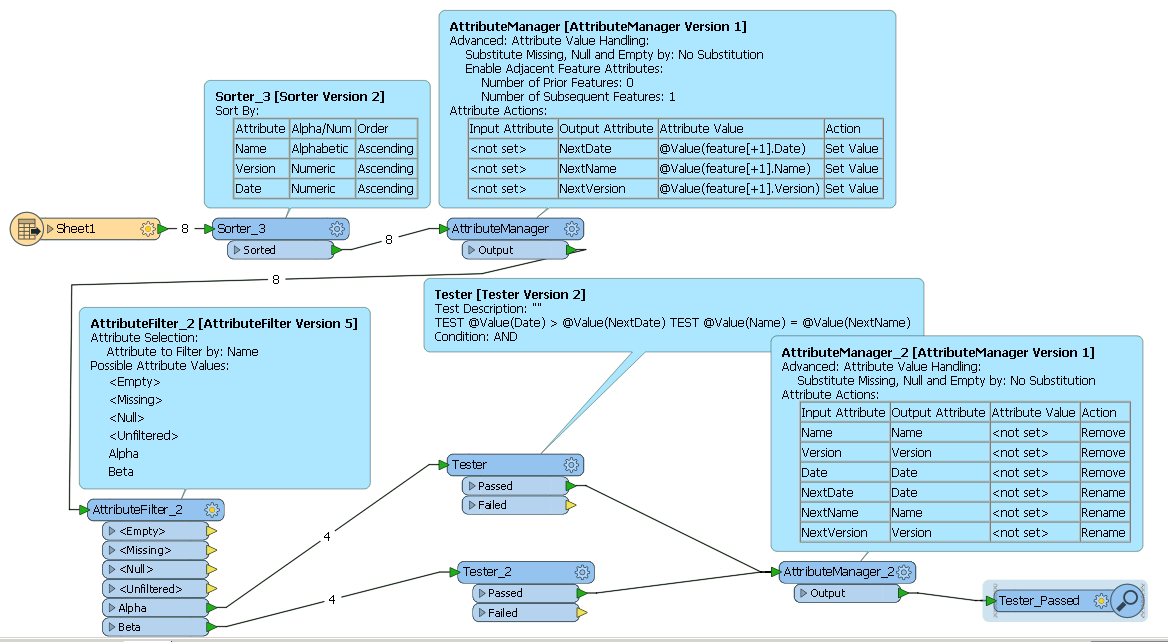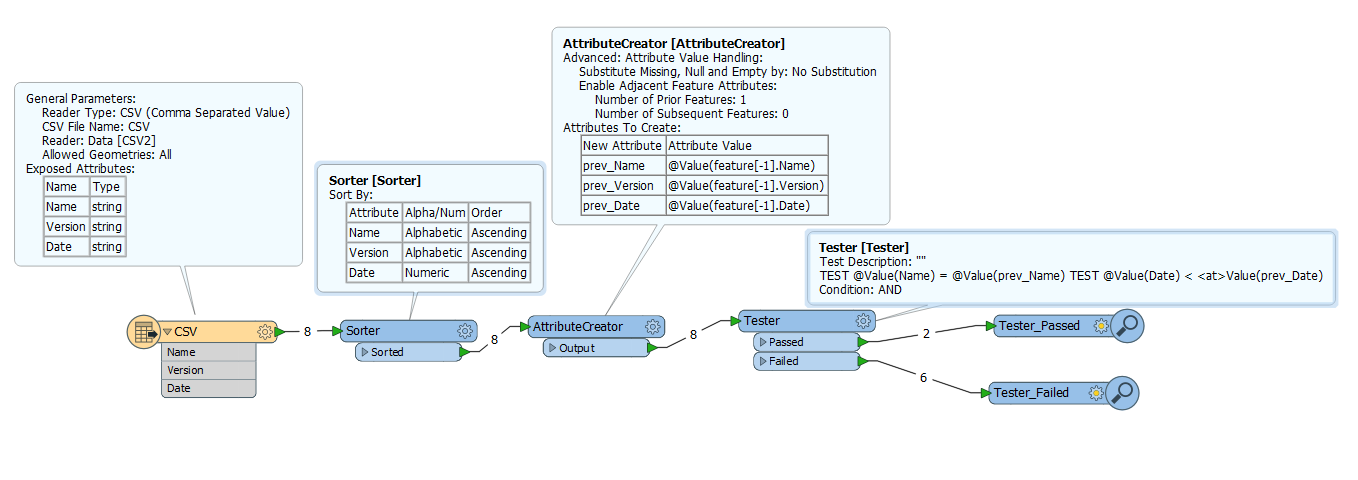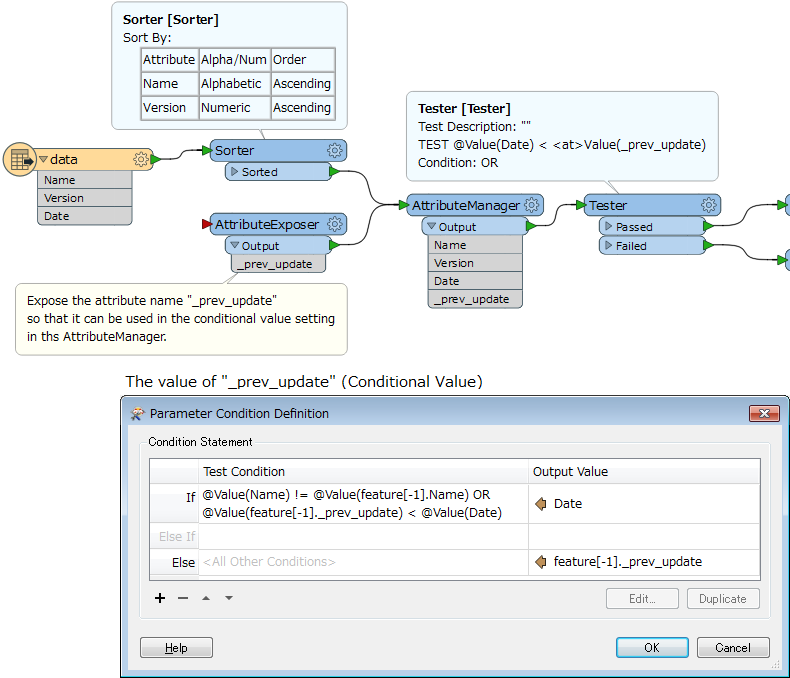Hello, I have the following table:
Name Version Date
Alpha 1.1 20170304
Alpha 1.1 20180304
Alpha 1.2 20150204
Alpha 1.3 20191004
Beta 1.1 20130304
Beta 1.2 20150404
Beta 1.2 20161204
Beta 1.3 20151004
I would like the following records as an output:
Alpha 1.2 20150204
Beta 1.3 20151004
These are the records who have a bigger version but theirs dates are inferior to the max date of the previous version grouped by name. How can I find these records automatically? I have more than 100 000 records to analyze. Thanks!

















